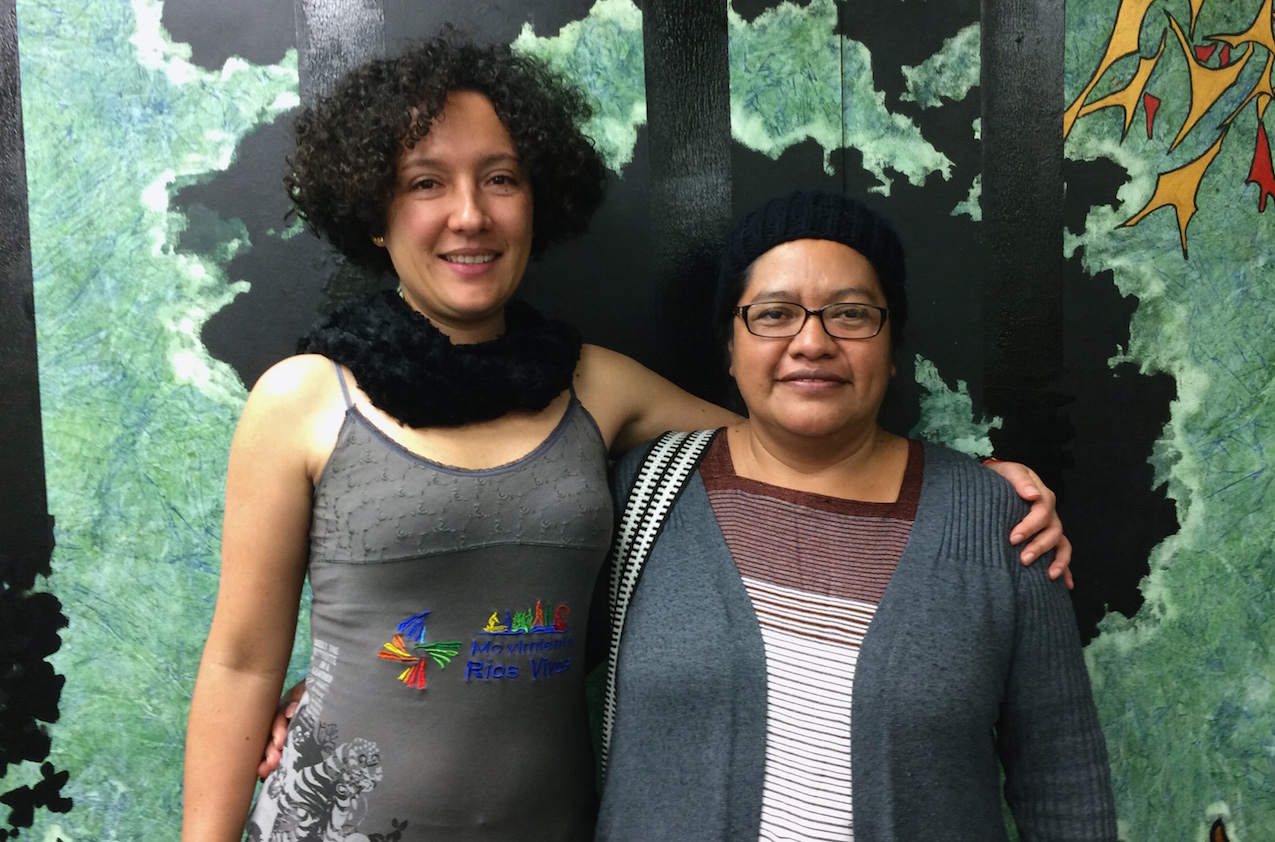Large-scale resource extraction often perpetuates violence, even in countries with peace accords. Those who mobilize to protect the land and water to build peace are often women.
Such is the case in Guatemala and Colombia, where extractive mega-projects with Canadian interests hinder peacebuilding processes.
Guatemala’s civil war ended in 1996 with the signing of the peace accords. In the nearly four decades of internal conflict, hundreds of thousands of people died, and tens of thousands went missing, the vast majority of whom were Indigenous.
Guatemala’s peace accords included articles specific to Indigenous land rights.
And yet, the same peace agreement further opened Guatemala to foreign investment by taking advantage of lands from which Indigenous communities had been dispossessed. Since 1996, the number of Canadian-backed extractive projects on or near Indigenous communities, particularly mining projects, has increased.
Not surprising, conflicts over territory, violations of the right to consultation, and disparity in decision-making powers have accompanied these megaprojects. Indigenous women, who feel the impact of this conflict acutely, are also leaders in the defence of collective rights for land and water.
Natalia Atz Sunuc is a Maya Kaqchikel human rights defender in Guatemala. In accordance with the peace accords and community specific protocols, she has supported Indigenous communities in carrying out community-led consultations.
She is one of many Indigenous women who play a central role in ensuring widespread participation in and full transparency of community consultations. And despite exemplifying Indigenous self-governance in action, the results of these consultations — often to reject extractive projects — have not been recognized by the state.
For its part, the Guatemalan state has granted extractive companies mining permits. Indigenous communities have challenged these clear violations of the right to free, prior, and informed consent through non-violent civil disobedience. Public and private entities have responded with violence.
Colombia is facing a similar reality.
The government of Colombia signed a peace agreement with the FARC (Revolutionary Armed Forces of Colombia), a guerrilla group, in 2016. This peace accord was welcomed after half a century of war, which resulted in the death of more than 200,000 people and the displacement of millions of others.
One of the central tenets of the peace agreement is land reform. However, the restitution of land dispossessed from Indigenous and Afro-descendant communities during the armed conflict has been an epicentre of violence.
Isabel Zuleta is the spokesperson of the Ríos Vivos Movement as well as a member of the Association of Women Defenders of Water and Life in Antioquia, Colombia. She is a land and water defender calling attention to the dangers of the Ituango Dam on the Cauca River, a hydroelectric dam funded in part with Canadian funds. In 2018, a construction failure in the dam led to flooding that displaced thousands of people. Isabel has received death threats and criminalization. Her colleagues have been murdered.
According to the Institute of Development and Peace Studies in Colombia, more than 700 human rights defenders have been assassinated since 2016. Many of those killed were Indigenous and Afro-descendant social leaders working in defence of territory and the implementation of the peace accords. Countless others have been physically threatened and criminalized for similar efforts.
In “post-conflict” Guatemala and Colombia, women land and water defenders work daily to ensure that national institutions and international actors carry out the non-repetition of violence against bodies of land, water, humans and animals.
The government of Canada must also do its part by holding Canada-based extractive companies operating abroad responsible for misconduct that violates any provision of a peace agreement. A start would be to empower the recently staffed office of the Canadian Ombudsperson for Responsible Business Enterprise with the power to compel documents in its investigation into complaints.
As Isabel Zuleta and Natalia Atz Sunuc attest, the protection of the environment and the defence of land and water are integral to peacebuilding. Canada must ensure that the behaviour of its extractive sector does not further jeopardize this.
KAIROS is launching an online hub to connect and help further empower women land and water defenders in Canada and worldwide. Called Mother Earth and Resource Extraction — or MERE Hub — the resource was developed in consultation with women at the forefront of environmental protection.
To mark the launch of MERE Hub, KAIROS will host a panel on November 27 at Ryerson University featuring Natalia Atz Sunuc of the Guatemalan association Kaji’ Ajpop and Isabel Zuleta, with Movimiento Ríos Vivos Antioquia in Colombia, and moderated by Magdalena Ugarte, Assistant Professor at Ryerson University’s School of Urban and Regional Planning. The first phase of MERE Hub will focus on Latin America. The second phase, to be launched in the spring of 2020, will focus on Canada.
Gabriela Jiménez is the Latin America partnerships coordinator at KAIROS: Canadian Ecumenical Justice Initiatives.
Image: KAIROS




